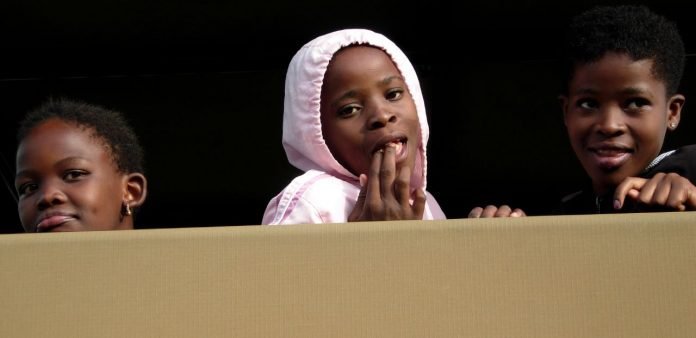By Modupe Yusuf
- Title: After the Tears
- Author: Michelle Faure
- Publisher: Cover2Cover Books
- Number of pages: 144
- Year of publication: 2014
- Category: Young Adult
Ideal love stories are ideal because they are a near-perfect imitation of what we dream love should be about. They have a happy ending, too. This love story, After the Tears, is however not that ideal. The recklessness of youth and the calculations of the not so young sometimes result in unforeseen and seemingly helpless situations. Such is the case with Busi whose life suffers a sharp reversal when she is made pregnant by her much older and married boyfriend. Having to care for her ageing grandmother while preparing for her final examinations and while dealing with the embarrassment of a swelling belly, she shies away from all social activities involving her schoolmates. Her otherwise simple life takes interesting turns within a really short time.
Through this work, Michelle Faure draws attention to the ways in which dysfunctional homes may affect the lives of youths in the society. This is aptly demonstrated with the life of Parks and his wife. Parks, Busi’s boyfriend, is a married man whose home is controlled by his rich wife, Themba. Themba came to wealth through her uncle who impregnated her before her wedding, but she lost the pregnancy in an accident for which she blames Parks. Parks, in turn, blames his wife for pushing him to seek the affection of adolescent girls because she does not respect him as her husband. Busi is one of such girls.
The relationship between Parks and Themba exposes the motives for their actions throughout the story. They lean on each other in their times of need yet they seek to hurt each other to avenge the wrong done to them by their partner. For instance, when Themba threatens to take Busi’s baby, it is not just for the love of a child or to help a young girl in need. She wants to get the baby in order to spite Busi for being the one who gets pregnant, ‘a feat that no other girl has been able to achieve with Parks, not even his wife’. Themba’s obsession with this idea sees her sparing no means, including hiring someone from Busi’s neighbourhood to trail her when it becomes obvious that the girl will not give up the child without a fight. She also wants to get back at her husband for destroying her womb and then getting another girl pregnant. This relationship between Parks and Themba is symbolic of those failed homes that present a united front to the public whereas their lives as individuals and as a couple are deplorable.
Busi’s parents are another example. Their search for an improved life in the city throws them apart. Her father moves in with another woman and refuses to assist his wife in anyway. He does not care about their daughter. His wife is convinced that the daughter is the reason he left in the first place, so she is afraid to discuss the challenges their daughter is facing with him. This makes it impossible to heed her daughter’s call for help when Parks’s wife threatens to take her baby. The void that is created by the absence of a parent figure makes children vulnerable to certain conditions they should not have to deal with. With no one to protect and guide her, Busi leaves her baby in the hands of total strangers. Hope is only restored when her mother returns and she finds out that her baby is not totally lost to her and that she does not have to deal with the situation alone anymore.
After the Tears also depicts the social life of high school senior students in a fast-paced, technology-driven South Africa. Seniors behave as though writing their final examinations is all that is required to launch them into a life of freedom. They practice for this anticipated freedom even while in school. Partying, drinking and ‘hooking up’ become the norm. Although this lifestyle of freedom is enjoyable, Faure draws our attention to the fact that it should not go on without adult supervision.
The complexity of human relationships is subtly expressed in this book. People sometimes make a demand against the help that they render to others, no matter how small, and mutual understanding is key to the symbiotic nature of human support systems. Varying needs put people on different pedestals. The author demonstrates these with the relationship between Busi and her friends, especially Unathi. Busi’s friends carry on with their lives, insensitive to the special needs of her pregnancy, but Unathi, disregarding his disappointment with the way things have gone between them, places Busi’s need for safety above his own in order to protect her and without demanding an explanation.
The book ends on a note that appears to appeal to the heart to let go of all its grievances and to foster healthy relationships amongst family and friends. It draws attention to the role of the family as the primary place of protection for the youth in society.
After the Tears is an emotionally beautiful attempt to look at unconventional relationships. Its appeal is in the author’s sensitive portrayal of the feelings of the young girl-protagonist. The author creates a beautiful balance for her messages about youthfulness, child abuse, family and life. This makes the book an entertaining and educative read for both young and adult readers.
Comments should be sent to comments@wawabookreview.com. Please use the appropriate review title in the email subject line.

